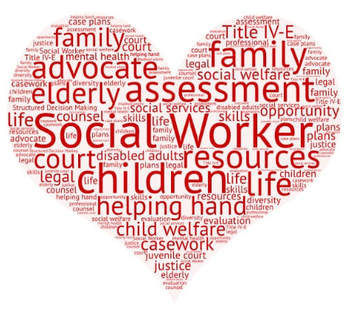
Honest with you about how I feel about some of my caseworkers who I have worked with while caring for children in foster care.
In all honesty…. I love them!
Through the years as a foster parent, I have worked alongside so many different caseworkers. In that time, I have had some incredible and amazing caseworkers, and have come to call a large number of them my friend. I have found that caseworkers are often over worked, under paid, under resourced, and overwhelmed. Indeed, they have a most difficult job. In truth, I do not know if it is a job I would wish to have, or one that I could handle. They simply have too much paperwork, caseloads, responsibilities, and paperwork accountable to them, with less and less time and resources given to make it all work. On top of that, it seems that someone is always upset with them, at one point or another. The birth parents are mad with them, the child is upset with them, the judge disagrees with them, and perhaps you might be a little frustrated with them. It is a thankless job, to be sure. Yet, what so many forget is that our caseworkers have feelings and emotions, just like foster parents. They may disagree with a court’s decision about the child in your home being removed. They may experience feelings of frustration with the process. They may be upset over the birth parent’s progress. They may even experience feelings of grief and loss themselves when a child leaves your home.
Indeed, as I recognize that today’s case workers are truly overworked and under resourced, I have tried to help them as best I can. After all, we are both working to help children in need, right? In order to help them, help your foster child, and help yourself, there a few things you can do to ensure that the relationship between the two of you is a positive one.
Before you meet with your caseworker, whether at home or another setting, make sure you are prepared beforehand. Have all proper forms and information gathered together which you might need for the caseworker. This includes any school progress and report cards names and contact information for his teachers, calendar of upcoming events in your household, medical paperwork, receipts and invoices, and any other personal observations you may have noted for your foster child. Also have with you your foster child’s medical information, such as doctor’s name, address, and phone number, primary health care information, as well as any dates for future medical and dental appointments.
If you should be traveling to meet at a predetermined location, make sure that you arrive on time, and that both you and your foster child are dressed nicely. You may be meeting with the birth family, and you will certainly not only wish to look nice for them, but you will also want your foster child to be dressed and looking nice for his family. A nice clean pair of pants, button up shirt, and nice dress shoes is appropriate, and presents a nice image for yourself, as well as the fact that your foster child is looked after and well taken care of in the eyes of the biological parents and family members. You surely do not wish to give the impression that your foster child is living in a dirty environment, and that he is not living in a safe and loving home.
Join the thousands who receive Dr. DeGarmo's FREE foster care newsletter. Simply fill out the form below.
Like any healthy relationship, it is important that your relationship with your foster child’s caseworker is an open one, and is built on trust and mutual respect. It is important that you share all information with the caseworker about your foster child. Be honest with your caseworker about any concerns you might have in regards to your child. If you see signs that your foster child is having trouble adjusting to your home and family, share these concerns with the caseworker. Perhaps you have seen troubling signs after a visit with your foster child and the biological family members. If so, let your caseworker know. If you are worried about a possible reunification with the biological family, express these worries to the caseworker. If your foster child should become sick, let the caseworker know, even if it should be a day at home from the common cold or flu bug. Caseworkers have the responsibility of documenting everything when it comes to each of the foster children in their caseload. Do not be afraid of holding any information or concerns. Instead, the more you share with the caseworker, and the more honest you are, the stronger your partnership will become, which only benefits the wellbeing of your child.
Take steps to develop lines of communication with the caseworker. Make sure the both of you have current telephone numbers and email addresses, for both home and work. Plan ahead, if possible, for home visitations, as well as visitations with the birth parents. There will be times when you will need to make a request to your caseworker, whether it is for permission to take your foster child on a vacation, attend a summer camp, or perhaps even attaining some additional reimbursement for a Christmas present. If you work from the beginning in establishing a strong partnership, these requests will be easier to make, and have a better chance of being met.
Finally, join me in thanking the caseworkers that we are caring for. Send them a note, give them a call, text a message. Just take time to thank him or her for all they are doing to help the child living in your home.
Thank YOU case workers. What you are doing truly matters!
-Dr. John
The Foster Care Institute
Order your signed copy of the brand new book The Foster Care Survival Guide: The Essential Guide for Today's Foster Parents.



 RSS Feed
RSS Feed